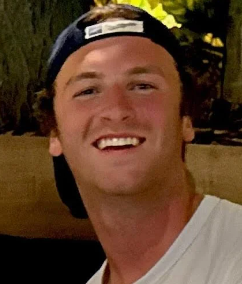
 July 20, 2016 Press Contacts Raymund Flandez: Communications Officer 202.314.1772 [email protected] Museum Press Kit UNITED...
July 20, 2016 Press Contacts Raymund Flandez: Communications Officer 202.314.1772 [email protected] Museum Press Kit UNITED...
July 20, 2016
Press Contacts
Raymund Flandez:
Communications Officer
202.314.1772
[email protected]
UNITED STATES HOLOCAUST MEMORIAL MUSEUM DEEPLY CONCERNED OVER POLISH EDUCATION MINISTER’S REMARKS ON JEDWABNE POGROM
WASHINGTON, D.C. – The United States Holocaust Memorial Museum is concerned over recent public statements by the Polish Education Minister, Anna Zalewska, questioning that Poles participated in the murder of hundreds of their Jewish neighbors during a Holocaust-era pogrom in Jedwabne.
“It is disturbing that the senior government official responsible for education in Poland would openly question long-settled history about crimes targeting Jews on Polish soil,” said Tad Stahnke, Director of the Museum’s Initiative on Holocaust Denial and Antisemitism. “Unfortunately, these latest comments are not the only action by the Polish government that raises questions about its commitment to a free and open dialogue addressing Poland’s history during the Holocaust.”
According to press reports, Minister Zalewska told a television interviewer that the 1941 massacre of Jews at Jedwabne, “is a historical fact that has led to many misunderstandings and very biased opinions.” After the journalist asserted that, “Poles burned Jews in a barn,” Ms. Zalewska replied, “That’s your opinion repeated after Mr. Gross.”
The reference is to Polish-American scholar and Princeton Professor Jan Tomasz Gross, who has written extensively on Polish resistance to the Nazis and published a thoroughly researched book on the Jebwabne massacre which details the involvement of Poles in the killings.
Earlier this year, the government announced that it was proposing legislation to make it a criminal offense to publicly suggest that Poles shared responsibility for Nazi crimes in Poland. In April, a Polish prosecutor questioned Professor Gross about a September 2015 editorial – which included statements about Polish violence against Jews in World War II – to investigate if he committed the crime of publicly insulting the nation.
“Historians of Poland, from both inside and outside the country, have conducted widely respected research on all aspects of the Holocaust in Nazi-occupied Poland,” continued Stahnke. “The government should encourage this research and the healthy discussions it generates rather than prescribe limits on it.”
Polish President Andrzej Duda, during a recent commemoration of the postwar pogrom at Kielce, stated that antisemitism has no place in contemporary Poland. We hope the president will exert his leadership in this regard.
The Holocaust in Poland
From 1939-1945, Poland was brutally occupied by Nazi Germany. (The Soviet Union occupied eastern Poland between 1939-1941.) Deemed inferior in Nazi racial ideology, almost two million non-Jewish Polish civilians were killed by the Germans and millions more were imprisoned and subjected to forced labor.
By the end of the war approximately three million Jews – 90% of Poland’s Jewish population – had been murdered in the Holocaust. Many Poles risked their lives to save their Jewish neighbors. Some 6,620 individuals are recognized as “Righteous Among the Nations” by Yad Vashem, more than from any other country. However, many Poles were complicit in Nazi crimes against Jews. In July 1941, Polish residents of Jedwabne, a small town located in then German-occupied Poland, participated in the murder of hundreds of their Jewish neighbors. In 1946 in Kielce, a mob of Polish soldiers, police officers, and civilians murdered at least 42 Jews in one of the worst outbursts of anti-Jewish violence in postwar Poland.
About the United States Holocaust Memorial Museum
A living memorial to the Holocaust, the United States Holocaust Memorial Museum inspires citizens and leaders worldwide to confront hatred, prevent genocide, and promote human dignity. Its far-reaching educational programs and global impact are made possible by generous donors. For more information, visit ushmm.org.
###
Content from United States Holocaust Memorial Museum
Originally published at https://www.ushmm.org/information/press/press-releases/museum-concerned-over-polish-education-ministers-remarks-on-jedwabne-pogrom
originally published at HUMAN RIGHTS - USA DAILY NEWS 24

